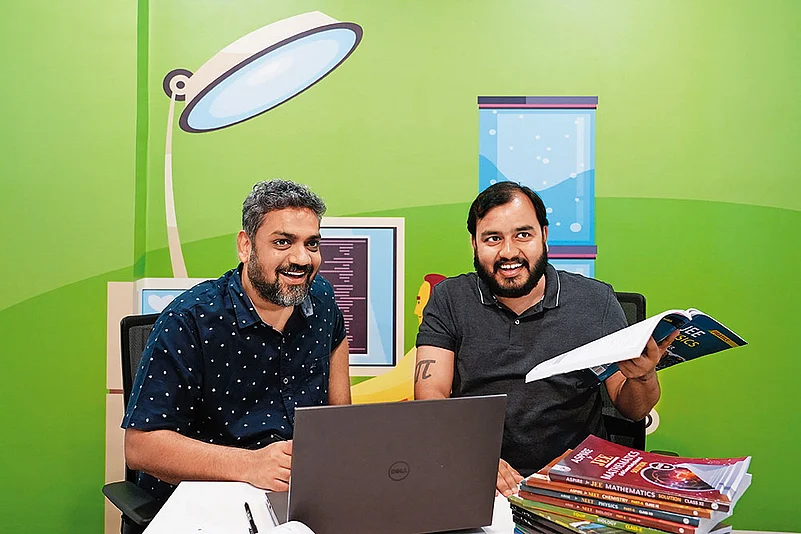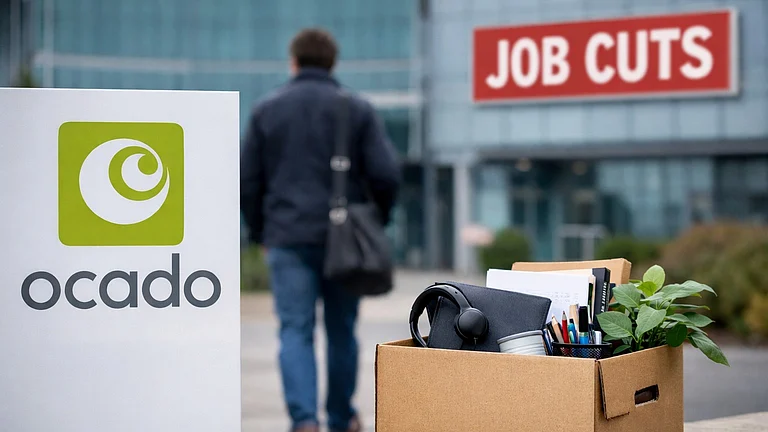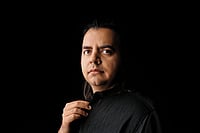The auditorium was filled to its capacity and a long queue of youngsters waited outside. As he took the stage, there was a deafening roar from the audience. “Alakh sir…,” they shouted. He is not a sports star or a film actor. He is Alakh Pandey, the co-founder and CEO of edtech start-up PhysicsWallah, or PW, as it is popularly addressed.

Launched as a YouTube channel in 2014 offering physics tutorials to school students, it has now been viewed over 1.4 billion times and has over 8.5 million subscribers on the platform. Today, it has nine partner channels and has forayed into regional languages, starting with Bengali. PW launched its app in 2020 and already has 6.5 lakh students poring over it for one-and-a-half hours on an average every month. It now tutors students from Class VI to XII of both central and state boards in multiple subjects with its prime focus on helping students crack entrance exams for a place in one of India’s 23 IITs and numerous medical colleges.
PW has also achieved the enviable feat of being a profitable edtech after clocking a profit of Rs 7 crore in FY21. Great statistics made the company a unicorn in June this year, as PW closed its first round of funding of $100 million from WestBridge Capital and GSV Ventures.
Prolific as they are, the numbers do not tell the fascinating story of Alakh Pandey. For that, you need to go back 28 to 30 years to a slum in Allahabad.
Bad times had befallen his family of four, which forced them to sell off their house and move to a slum. “This is actually a story of my mother. Meri amma ki kahani hai,” says Pandey in a mix of Hindi and English as he reminisces about his childhood.
He was in Class VIII when he, his sister and their mother started coaching school students in various subjects to make ends meet. That is when Pandey’s journey as a teacher began. His mother was resolute that she would never allow her children’s education to be compromised.
“She literally begged to ensure that we had the right education. But her suffering was unbearable. She had severe asthma and my sister and I would camp outside government hospitals every other day, trying to get her treated,” says Pandey. He remembers sleeping on pavements with only stray dogs as company at times. “We had no money for doctors or medicines. Only the Re 1 that government hospitals charged,” he adds.
Today, Pandey’s biggest achievement is perhaps the fact that he has managed to get the best doctors of the country to treat his amma. “She is much better now. Her asthma attacks are now infrequent,” he says.
Pandey remembers how relatives pooled in money to ensure he and his sister could go to school. But not once does he rue the hardships of his childhood. His family had no business legacy. In fact, his father failed at most businesses he tried his hands at. “If my father was a crorepati or my mother had no sufferings, I do not think I would be this resolute about my purpose in life,” Pandey says, negating the advantages that scions of business families have in one stroke.
“I suffer from a massive fear of failing and that is what pushed me at each step. If I had the privilege of family support, I do not think I would have been able to create PW,” says Pandey. “You need a fire in your belly to make it big. You cannot have that if you have a cushy life,” he adds.
The ‘Killer’ Product
“Ek killer product hona chahiye. What matters is your product, not who made the product. It does not matter whether a Birla makes it or a Pandey. PW batches sell like hotcakes on the strength of our idea behind our products and its implementation,” explains Pandey.

But his batches also sell because of Pandey’s passion and maniacal focus on the PW courses—whether on the app or on YouTube. They sell because Pandey has only one thought: what is the next big thing PW should do?
“You have to give your business idea that kind of dedication that you will give to your mohabbat. Aur sachhi mohabbat kabhi chhod ke nahi jaati (‘true love never leaves’),” says Pandey.
PW was born while he was sipping tea at a roadside shop in Allahabad and that chaiwallah was the inspiration for PhysicsWallah. From YouTube to the PW app, PW Pathshala and now PW Vidyapeeth in Kota, all were in response to Pandey’s constant search for the next big thing. For Pandey, entrepreneurship is about the business idea and the passion for executing it. He sounds possessed as he talks about his passion—physics.
“Ek paagalpan hona zaruri hai (‘there is a kind of madness that is required’). As I said, true love never leaves you. For me, it is physics. People have left me from time to time. Papa ne saath chhod diya tha … girlfriend ne bhi (‘my dad left me, so did my girlfriend’). But I knew that as long as I have physics, nothing will happen to me,” says Pandey.

His rustic humour and outspoken nature ring through this conversation and glimpses of these can be caught in his online avatar as well. His videos are peppered with jokes on love, success and heartbreaks; there is also shayari that can be heard from time to time and, of course, the all-so-relatable experiences of a schoolgoer that he shares—all of these make up the Alakh Pandey phenomenon that students throng to see when he visits any of PW’s brick-and-mortar classrooms. Pandey does not need a Shah Rukh Khan to sell his courses—he is the superstar of PW.
But his paagalpan had to be complemented with an astute business sense. It is his co-founder, Prateek Maheshwari, who is what Pandey calls the Marwari buddhi (‘business mind’). “We are obsessed with return on investment. We do not spend any extra buck on marketing unless we see it translating into more enrollments,” says Pandey.
“Pricing remains one of our main focus areas. And then, of course, there is the faculty. I keep a sharp focus on their ratings,” he adds.
PW sells courses for IIT and medical entrance exam coaching between Rs 1,000 and Rs 4,000, which is one-tenth the fees charged by competitors.
PW’s business model could be the answer to the woes of the sector. No cash burn on any marketing gimmicks, continuous mechanism of feedback on courses and teaching staff and, most importantly, the pricing of the courses.
The Old and the New
India’s test-prep market is a landmine of opportunities, and Pandey believes it has enough room to house both the old conventional firms and new edtech companies, though he is clear that offline educators will have to move online sooner rather than later.
“The difference between PW and a legacy business running an educational institution is that the latter will have the financial strength to penetrate a crowded market. For a start-up like ours, it is largely about the first-mover advantage,” says Pandey.

As the Indian government goes slow on hiring, a seat in the country’s premier engineering and medical colleges becomes the biggest dream for the middle-class student. The fight is perhaps the toughest in the world and is filled with the horrors of suicides, breakdowns and impossible study schedules, where about 15 lakh aspirants vie for 1,00,000 medical seats across the country and, in 2022, nine lakh students are fighting for 16,000 seats in 23 IITs. The frenzy for these placements could not get crazier.
Preparing for these entrance exams also involves big money. Most of it happens in Rajasthan’s Kota and has come to be known as the “Kota factory” in popular culture, as it houses the maximum number of entrance coaching centres in India. Industry estimates say that close to two lakh students have headed there this year to prepare for the exams.
It is ironic that Pandey, a mechanical engineering dropout from the esteemed HBTI college in Kanpur, has set up PW to counter the Kota factory. Pandey has set out to ensure that no child in India meets his fate where, despite having the aptitude, he could not take the IIT entrance test for a lack of money. He understands Indian students and their vulnerabilities. His mother constantly checks if he still teaches for free on YouTube. Tags such as “unicorn” do not matter to her, but she ensures that financial disadvantages do not stop a student from competing for India’s elite institutions. So, fees are waived off for many students.
PW now coaches school students from Class VI onwards. It plans to move beyond it to capture the entire gamut of K-12 (kindergarten to Class XII), while test-prep courses for engineering and medical colleges and the National Defence Academy will continue to be its centrepieces. PW wants to add prep courses for other exams as well.
A bootstrapped PW raised funds to ensure there was an official valuation of the company. It helped the company retain talent against poaching attempts by competitors, as employee stock ownership plans made more sense with a billion-dollar valuation in place.
“Our new product line has been worked out. We are trying a two-teacher model, as is prevalent in China, where an online teacher is supplemented by a local teacher. But, as I have said, for every product, margins are the most important,” explains Pandey.
The Next Generation of PhysicsWallahs
There are certain ethics that the founders of PW stand for. Apart from their mission to ensure that the next IITian of India comes from the remotest part of the country, for whom access to good teachers and steep fees would never be roadblocks again, it says a strict no to nepotism.
“I do not have any relatives working in PW. Why should my children? Mujhe kisine PW banakey haath mein thodi na diya tha? Mein kyun apney bachho ko doon? (‘No one handed me PW as a legacy. Why should I do it for my children?’),” asks a resolute Pandey. He is certain that PW will be an intergenerational company, but his next generations will not be handed the reins. He wants PW’s employees, who are building the company along with him, to be the rightful inheritors.
But that does not mean Pandey and Maheshwari are looking at exits. “You can never take physics out of me. If I exit PW, I will have to teach somewhere else. So, why will I exit?” asks Pandey. “Oh, you mean, money?” smiles Pandey. “I do not think anyone ever needs more than Rs 10 crore to live a lifetime. Utna humney aise bhi kama liya hai (‘I have earned that much anyway’),” Pandey says with a wink.
The real reason behind his reluctance to allow his future generations from taking over PW lies in his life lessons. Struggle, he believes, is the main ingredient of shaping a true entrepreneur. His amma says that without adversities and struggles, there are no learnings.
“I feel sad for those who are born with the proverbial silver spoon. They have never struggled or faced hardships. Without them, when life throws a curveball, these people do not know what to do. Also, without adversities, you have no connect with people,” says Pandey.
“Sona kaise sona banta hai? Usse aag me tapaya jata hai, peeta jata hai. (‘How does gold become gold? It is purified in flame. It is beaten’),” says Pandey as he signs off.
Not a Chaiwallah
A bright student, Alakh Pandey had enrolled in Kanpur’s Harcourt Butler Technical University to become a mechanical engineer. He, however, dropped out in his third year as he saw no value in the engineering curriculum. “Most students took up jobs in software, marketing, etc. and I thought to myself, ‘What was I doing?’,” says Pandey. “So, I decided to drop out. I was already studying on a loan, so while my mother supported my decision, my sister was aghast,” he adds.
To talk a steadfast Pandey out of the decision, his sister had gone to Kanpur to meet him. While the siblings were sipping tea at a stall called “Chaiwallah”, his sister asked him, “Toh padai chhod ke chaiwallah baneyga kya (‘Will you quit studies and become a tea seller’)?” Pat came Pandey’s reply: “Chaiwallah nahi, PhysicsWallah banunga (‘not a tea seller, I will become PhysicsWallah’)” and the idea was born.































